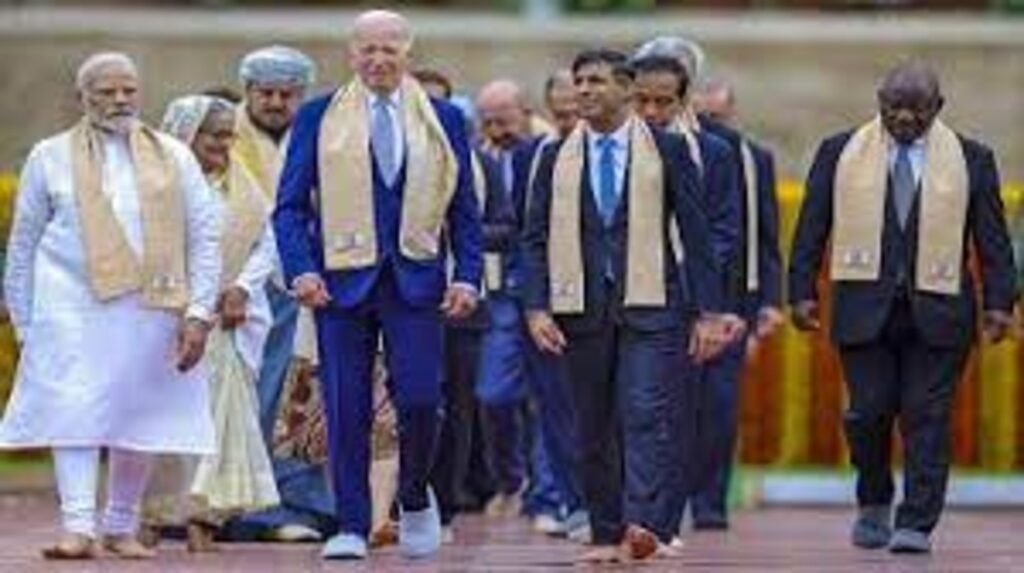Introduction
The G20 Summit, hosted by India under the theme of “One Earth, One Family, One Future,” has drawn to a close with significant developments and a ceremonial transfer of leadership to Brazil. Here are the key highlights and outcomes from this significant global event:

1. Delhi Declaration Emphasises Territorial Integrity and Peace:
The G20 members unanimously adopted the Delhi Declaration, emphasising the importance of upholding territorial integrity, international humanitarian law, and the multilateral system to safeguard global peace and stability.
2. Transfer of G20 Presidency:
Prime Minister Narendra Modi handed over the G20 presidency to Brazilian President Luiz Inacio Lula da Silva. President Lula praised India for championing the interests of emerging economies during the summit.
3. Focus on Social Inclusion and Sustainable Development:
President Lula listed social inclusion, the fight against hunger, energy transition, and sustainable development as G20 priorities. He called for greater representation of emerging countries at international institutions like the UN Security Council, World Bank, and IMF.
4. Addressing the “Global Trust Deficit”:
A notable outcome of the summit was a commitment to address the “global trust deficit.” This recognition underscores the importance of trust and cooperation among nations to tackle global challenges.
5. Global Biofuel Alliance and Connectivity Networks:
The summit witnessed the launch of the Global Biofuel Alliance and the establishment of new connectivity networks involving the US, India, Saudi Arabia, and Gulf states, highlighting the importance of collaboration in addressing energy and infrastructure needs.
6. China and Russia’s Support:
China and Russia, despite their leaders’ absence, expressed support for the Delhi Declaration. However, the declaration did not explicitly condemn Russia’s actions in Ukraine, leading to mixed reactions from some participants.
7. Renewable Energy and Fossil Fuel Subsidies:
G20 members committed to tripling global renewable energy capacity by 2030 and phasing down coal power in alignment with national circumstances. They also pledged to uphold the promise made in 2009 to eliminate inefficient fossil fuel subsidies.
8. African Union Joins as Permanent Member:
In a historic move, the African Union was inducted as a new permanent member of the G20. This step aims to provide developing nations with a more influential role in global decision-making.
9. Homage to Mahatma Gandhi:
Ahead of the summit’s sessions, delegates paid homage to Mahatma Gandhi at his memorial Rajghat in Delhi, reaffirming the commitment to non-violence and peaceful cooperation.
10. Media Addresses:
Foreign Minister S. Jaishankar and G20 Sherpa Amitabh Kant are scheduled to address the media, providing further insights into the summit’s discussions and outcomes.
The G20 Summit in Delhi has reaffirmed the importance of international cooperation in addressing pressing global challenges, including climate change, sustainable development, and peace and security. The unity and commitments made during this summit reflect a shared vision for a more inclusive and interconnected world.






